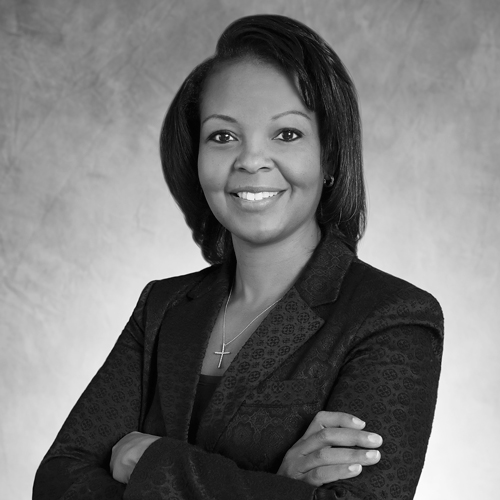It was already a storybook celebration. Rick McMurtry was in Italy for his wedding and honeymoon. He sat in one of Florence’s enchanting piazzas and listened to classical music rise through the warm summer air as a symphony played a free concert. His phone, silenced for the concert, started to vibrate. The screen illuminated with a text message. Then another. Then dozens more.
“Congratulations!”
“Street Legal in Georgia!”
“#LoveWins”
Just days earlier, on the one-year anniversary of his legal wedding to his partner, Randall Kilpatrick, McMurtry had stood in an ancient castle surrounded by 47 of the couple’s closest friends and family. The pair from Atlanta had been married in Canada, and then in Italy.
Now, at last, they were married in the United States of America.
As a gay person in the South, McMurtry once assumed he would never get married. He met Kilpatrick during a US District Court clerkship in Tennessee but had already accepted a job in Washington, DC. They decided to try a long-distance relationship.
McMurtry was bored of the monotony of IP work. He moved to trademark litigation in 1996, and when the time came to switch firms, he realized he and Kilpatrick were at an impasse. McMurtry didn’t want to be in Alabama; Kilpatrick wouldn’t move to DC. They settled on Atlanta as a compromise. After working for a law firm in Atlanta for two years, McMurtry landed an interview at Turner Broadcasting, won the job, and started as CNN’s trademark attorney in 2000.
Go inside their Atlanta home, and you’ll find a living room dotted with stuffed animals, comic books, action figures, and all the tiny things that are crucial in the world of a four- or eight-year-old boy. McMurtry and Kilpatrick have two adopted sons. The couple teach vacation Bible school, volunteer as school “room parents,” and stay active in the community. McMurtry calls it “leading by quiet example” and says it’s the way he can change how society views same-sex relationships.
“I’m thankful for all the important people who led parades and were activists for gay rights. People sacrificed so much and fought so hard,” McMurtry says. “But what’s changing America today is people like us. Your gay neighbors and the friends you grew up with. Our kids play together, and people realize we’re their colleagues, and friends, and employees.”
Breaking Down the Supreme Court Same-Sex Marriage Decision
Issue Debated: Federal recognition of marriage between two people of the same gender
Case: Obergefell v. Hodges – James Obergefell, et al., Petitioners v. Richard Hodges, Director, Ohio Department of Health, et al.
Argued: April 28, 2015
Decided: June 26, 2015
Ruling: A 5-4 decision stating that the 14th Amendment to the US Constitution requires all US states to allow same-sex marriage while recognizing those performed in other states
Majority opinion: Justices Kennedy, Ginsburg, Sotomayor, Kagan, and Breyer reversed the precedent set by Baker v. Nelson, citing the due process and equal protection clauses in the 14th Amendment.
Dissension: Justices Thomas, Scalia, Roberts, and Alito wrote their own dissents. Chief Justice John Roberts wrote that the ruling has “no basis in principle or tradition.”
For McMurtry’s boys, today’s world is different than the one their dads knew. That older, less-welcoming world was one in which gay men didn’t dare mention their orientation—especially in the workplace. “I never thought about marriage because we just knew it was impossible,” McMurtry says. “When things started to shift in this country, I thought maybe it was just a matter of time.”
He saw the shift coming after watching the Defense of Marriage Act (DOMA) case in which the surviving spouse of a same-sex couple—who had been married in New York—sued the federal government for denying her claim to her deceased spouse’s estate. A court found section three of DOMA was unconstitutional, and an appellate court upheld that decision in 2012. The case went to the US Supreme Court, which handed down a 5-4 decision in 2013 that declared the section unconstitutional. McMurtry knew it was a sign of things to come. “My partner and I realized our marriage would actually mean something more than a symbol of our commitment,” he says.
On June 21, 2014, McMurtry and Kilpatrick were married in Canada while visiting a close friend. “I was lucky that we had the resources to go to Canada to get married, and I’m so thankful that we live in a country where same-sex couples are now treated like everyone else when it comes to marriage,” he says. “We no longer have to live as second-class citizens.” McMurtry and Kilpatrick were far from the only ones they knew to take steps like these; a paralegal at Turner drove 10 hours from Atlanta to Washington, DC, to get married, since Georgia didn’t perform or recognize same-sex unions.
McMurtry’s own experience with marriage, DOMA, and the recent Supreme Court ruling have made him a compassionate leader at Turner, where he manages a team of 28 while protecting intellectual property assets worldwide. “My belief in being a quiet example translates to my work life,” he says, adding that he relishes the opportunity to get in the trenches on an especially complex project or initiative. He’s met one-on-one with most colleagues to better understand their practices and responsibilities and to focus on increasing efficiencies.
In doing so, he’s realized something that goes beyond the surface level of work relationships. “My own life has helped me understand what we all go through outside of work,” he says. “We all have our own crosses to bear. I don’t try to accommodate that—I try to leverage that to benefit everyone.” McMurtry has mentored gay and straight people on his team, sitting beside them to work through their issues. One individual, who came to the United States from Mexico at an early age to put herself through school, earned her master’s degree in business with the help of Turner’s tuition reimbursement program and is now a company director.
Since 2006, McMurtry has served on the board of directors for the Pro Bono Partnership of Atlanta, an organization that pairs in-house attorneys with nonprofits in need of legal services. Memorable cases include a trademark matter for Enchanted Closet, a group that provides prom dresses and suits to individuals in need, and a trademark infringement case for an HIV awareness, prevention, and treatment center.
You could say that McMurtry has a lot on his plate. He’s taking on more responsibilities at Turner (antipiracy, digital enforcement, and music licensing), continuing his pro bono work, raising two boys, and maintaining a healthy relationship with his husband. He wouldn’t change a thing. “In a way, being a part of the struggle for recognition of same-sex marriage has meant my generation doesn’t take marriage for granted,” he says. “We’re happy we finally have it, and life is good.”
Looking back at the Supreme Court decision, McMurtry says he’s not surprised. He came to expect the ruling, especially after the court struck down DOMA. Even if public opinion should stay out of the courtroom, he believes it’s starting to
influence decisions.
The number of Americans who support same-sex marriage has increased dramatically over the last two decades and now stands at 64 percent. “I see waves of acceptance from society when it comes to gay marriage, and now we have that same validation from our nation’s highest court.” Justice Anthony Kennedy, who voted with the liberal-leaning justices, represented the swing vote, demonstrating that future decisions will likely trend the same way until the makeup of the Supreme Court changes.
When asked how the ruling will change his life, McMurtry lets out a sigh. “Oh, I don’t know,” he says. “Maybe not that much.” After all, he had already been married to Kilpatrick two times. But it will change the lives of many—and McMurtry and his husband will continue living and leading as quiet examples.


